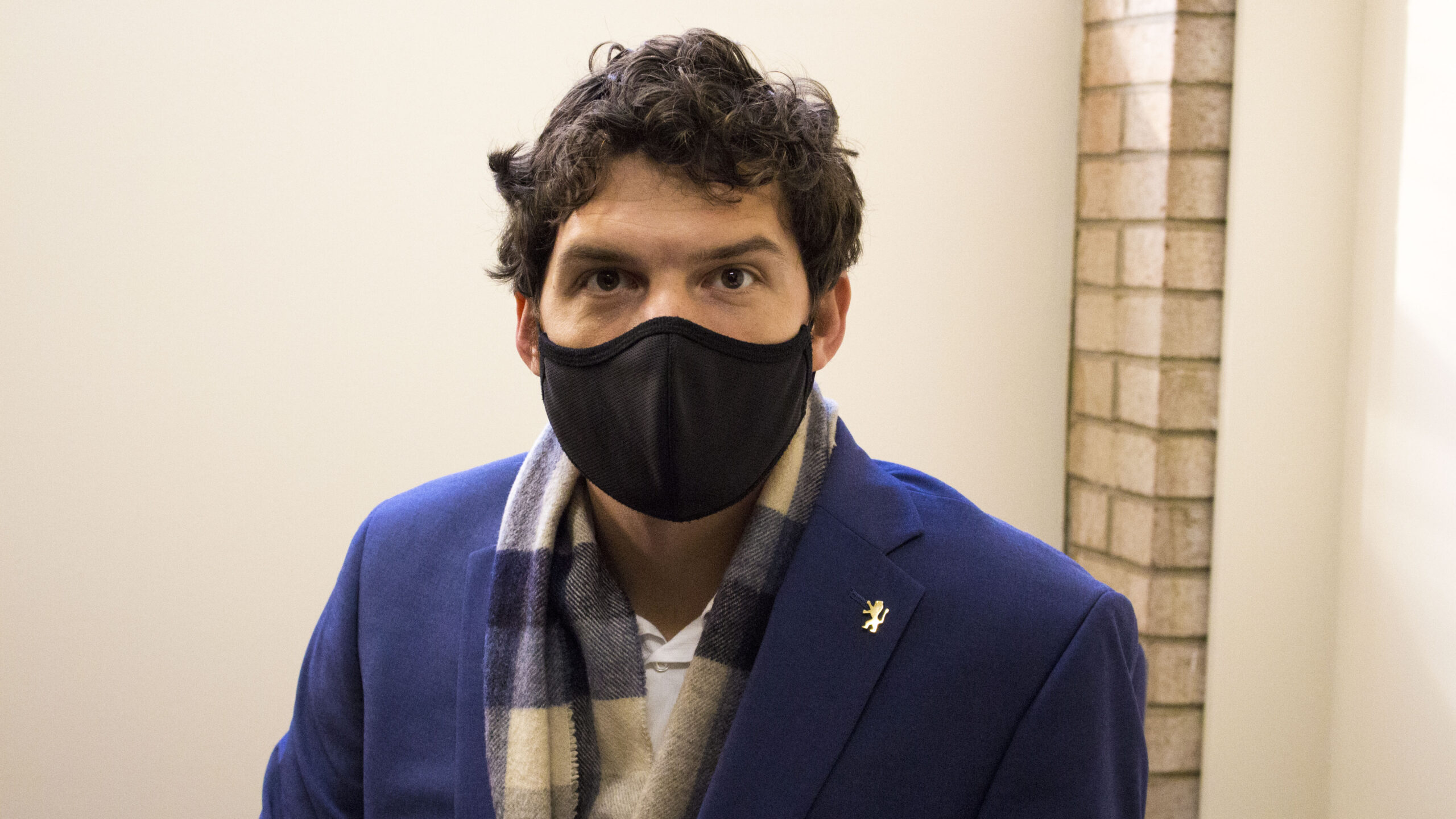URI Professor of Philosophy Giacomo Leoni is teaching a class that dives deep into the subtext of the “Harry Potter” book series. Photo by James McIntosh.
Giacomo Leoni is a professor of philosophy at the University of Rhode Island whose newly produced writing course has magically enhanced the honors program.
Recently, Leoni helped develop a new course within the honors program that examines the ethical messages in J.K. Rowling’s best-selling series “Harry Potter.” The course, HPR 412, delves into the lessons which society can learn in between the lines of these fantasy novels, according to Leoni.
The course gained a lot of attention from students across campus when it opened and quickly reached capacity for enrollment. Still, Leoni stressed that this course is far more intensive than revisiting a childhood classic.
“What draws us to literature is not necessarily the quality or the nature of the writing, but the themes,” he said. “The theory behind this class is that there is no cultural product that is message-free. Even when it’s for the imagination, there is still ideological and political messaging.”
Unearthing these important meanings in “Harry Potter” is what drew sophomore Lily Truppi to the course.
Truppi is double majoring in gender and women’s studies and criminal justice, yet she decided to take the course as a life-long fan of the series. Although the semester has just begun, Truppi believes she has already learned such valuable lessons from Leoni’s instruction.
“It’s really cool to challenge what the author wrote and how her bias kind of changes the story,” she said. “If you take away a lot of that bias, or a lot of her narrative, the story would have changed.”
That type of deep analysis is what Leoni expects from his classes. He wants students to enter the course with a colorful imagination, as well as the rigor to inspect the books and films with an open mind. His instruction revolves around asking students to examine why they read what they read.
While Leoni has read the books and watched the movies multiple times, he noted that some students have read all seven books and watched all eight movies more than he has. Leoni said that he views this class as an opportunity to teach and learn from his students while they do the same for one another.
“Some [students] are more familiar with the books and they can think of more examples, but some others have more theoretical groundings, and we try to merge the two with the goal of thinking about what we read,” he said.
Leoni began his academic studies in Italy at the University of Padova, where he focused on the history of ancient Christianity. His passion for philosophical questioning and phenomenology —the study of experience and consciousness— led Leoni to pursue a doctorate at Boston University.
Last January, Leoni became an instructor at URI in the honors program. So far, Leoni has taught classes on religious studies, ethics and an honors course in civic knowledge.
Many of the topics Leoni has explored in his courses are common subjects that require reflection throughout academic growth. He said that he wants students to consider customary literature and everyday events through different perspectives than their own on even some of the most fundamental things.
Leoni said that every group of students is distinct from one another, despite learning similar content. These differences are what have kept him on his toes while looking into such abstract concepts.
“I have taught multiple classes multiple times, and yet every semester, the conversation goes in completely different ways, even if the core texts are the same,” he said. “The students bring their own personal experiences to the table, and that is fascinating to me.”
Leoni said that the biggest obstacle he has faced as a professor has been teaching his students the purpose behind critical reasoning and philosophical thought.
He wants to show students the importance of education and learning outside of just focusing on making money and getting a good career.
“Not everything that I teach can be monetized,” Leoni said. “Certain skills, like writing skills, certainly translate well to the working environment, but others are meant to help us be better citizens and to have a clear idea of how we want to shape the world, not so much how we want to make bank.”
Leoni hopes to show students that there is a purpose behind every educational encounter. In his opinion, research and studies are not just about self-complacency or intellectual satisfaction, but rather there is a deeper meaning to academic thought.
This is a lesson that Leoni has experienced as a professor himself. Through watching his students succeed, he said that his time spent becoming a specialist was worth the journey.
Above all, Leoni said that he hopes for all of his students to recognize the social messages behind everything they encounter. Whether the topic is ancient philosophy or popular culture, Leoni hopes that students can broaden their horizons with reflective thought and acknowledgment of the significance of knowledge itself.





